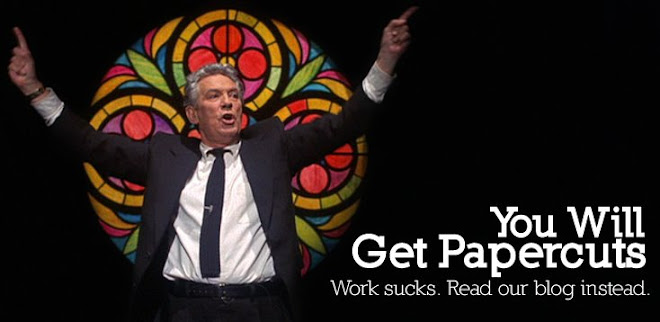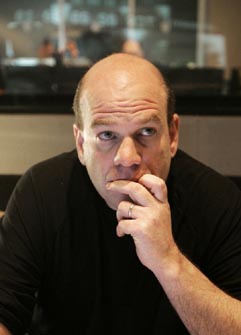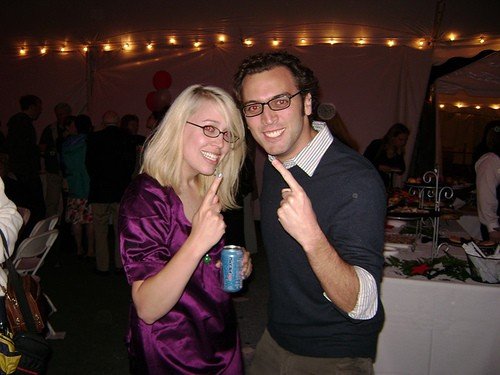
Yesterday I finally had the chance to catch up on my
Interview subscription, and in the September 2009 issue with Natalie Portman on the cover, there's a great interview that Aziz Ansari does with Jason Schwartzman. You can read the entire thing
here, but I isolated this portion, about Schwartman's experience writing
The Darjeeling Limited screenplay.
SCHWARTZMAN: The writing process was incredible. I wrote it with Wes Anderson and Roman Coppola, and it took about two years. We ended up finishing the script in the Himalayas.
ANSARI: Wow! Geez. That's awesome.
SCHWARTZMAN: Yeah, it was fun. And then we came back and had to rewrite it all in New York. It sounds so romantic- and it was romantic, because I was with my two great friends and we really were working on something very personal- but it wasn't romantically beautiful all the time. It was rough at times. But the real romance is being young and writing with your friends.
ANSARI: Do you have any advice for young actors, such as myself?
SCHWARTZMAN: You don't need any advice from me, man. You're incredible! You're like the funniest motherfucker in the world.
ANSARI: Aw, come on.
SCHWARTZMAN: I'm serious. But let's see. I'm not really one for advice other than, if you can write, write. If you have the ability to write, then you should write. Be diligent about it.
Schwartzman knows that a lot of the best art was created by groups of 20-somethings who had nothing better to do than sit around all day drinking and talking shit and smoking unfiltered cigarettes in dingy apartments and unfurnished houses. Think H.D. and Ezra Pound. Think the Beats. Think Warhol's Factory (hello, that's how
Interview mag started
anyway). Let this
Interview snippet be a rallying cry for all you writers out there and get your pens (or keyboards) moving! Jason Schwartzman commands it.






